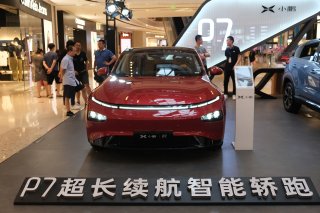How China Shifted Gears on Electric Vehicles—and Why It Matters
China’s ascent in the EV market marks the first instance in history where a country with a political regime and ideological values that differ from the democratic West is gaining momentum in a key industry representing the pinnacle of large-scale production.
As a tech-centric company, Tesla employs a highly integrated design model, building upon highly integrated modules, to achieve cost efficiency in large-scale production. Chinese domestic manufacturers must meet Tesla’s stringent standards to qualify as suppliers, which sparked fierce competition among local suppliers. However, this dynamic has contributed to the development of a local EV supply chain due to spillover effects: Tesla’s lead suppliers that integrate different parts and components into integrated modules for Tesla’s EVs have formed robust sub-supply networks.
These sub-supply networks also supply their parts and components to domestic EV makers. Unlike Tesla’s model of integrated modules, which can limit the speed of developing new vehicle models, domestic EV makers purchase parts and components and assemble them either in-house or at contracted factories. While this model may be less cost-efficient, it provides local EV makers with the agility and speed necessary to produce new and customized models for different segments of the market.
The Geopolitical Implications of Chinese Dominance over Electric Vehicles
China’s ascent in the EV market marks the first instance in history where a country with a political regime and ideological values that differ from the democratic West is gaining momentum in a key industry representing the pinnacle of large-scale production. The implications of this rise are profound and far-reaching.
As a de-risking strategy, European automakers are being attracted to build their production lines in the United States via industrial policies such as the Inflation Reduction Act passed last year. In fact, some have already relocated part of their production facilities there—Mercedes has established a new battery factory in Alabama, while BMW has invested in EVs in South Carolina.
Shifting gears on the EV track won’t be smooth for Chinese EV makers. The high degree of globalization in the complex EV supply chains presents significant challenges. Potential chokepoints, such as the control over supplies of high-end chips used in EVs, are particular areas of concern. These chips are integral to many EV components, from electric instruments to chip-embedded tires.
Data security is another critical concern. As sensor-equipped Chinese EVs could accumulate potentially sensitive data, other governments must balance cost-efficiency with security when importing Chinese-made EVs. China’s approach may offer a reference point, as it has implemented stringent data localization rules for Tesla EVs and restricted the use of Tesla vehicles in sensitive areas.
Chinese EV manufacturers face significant hurdles in establishing their brand image overseas. To do so, they need to develop local service systems and foster strong relationships with local dealers. Both tasks require a high degree of knowledge and a deep understanding of local cultures and institutions.
In relation to the Chinese market, it’s essential for Western car manufacturers to engage in collaborative R&D and product design efforts with their Chinese counterparts while maintaining a pragmatic approach. Volkswagen’s investment plan may provide a good example.
Conversely, it’s crucial for China to keep its market open to foreign car manufacturers, even within the EV sector where China has developed certain advantages. Tesla’s success in China serves as a prime example of such collaboration. From a geopolitical perspective, global collaboration is vital in establishing international standards for the EV market, especially in areas like data collection and storage, for the industry to advance. Ultimately, the interplay of competition and cooperation benefits consumers and facilitates the transition towards clean energy transportation.
Dr. Marina Yue Zhang is an associate professor at the Australia-China Relations Institute, University of Technology Sydney (UTS:ACRI). Prior to this position, Marina worked for UNSW in Australia and Tsinghua University in China. Marina holds a bachelor’s degree in biological science from Peking University, and an MBA and PhD from Australian National University. She is the author of three books, including Demystifying China’s Innovation Machine: Chaotic Order, co-authored with Mark Dodgson and David Gann (Oxford University Press, 2022).

